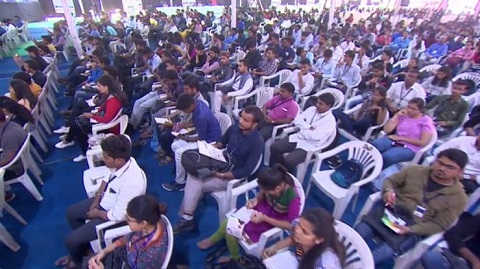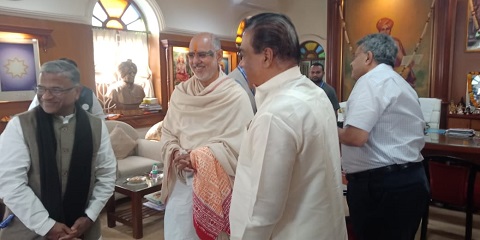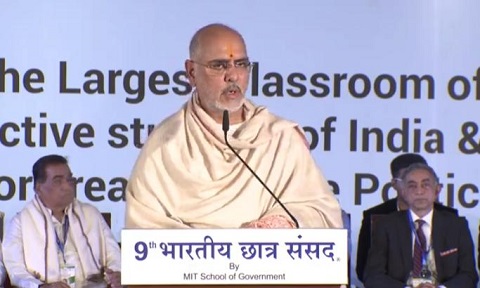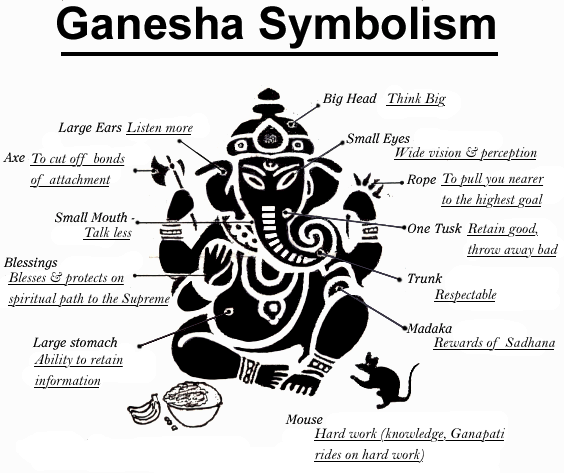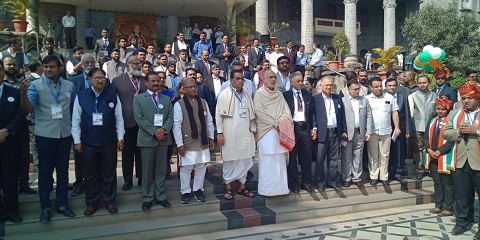Pujya Bhaishri was at the Bhartiya Chhatra Sansad (Indian Student Parliament) organised by MIT School of Government in Pune on 18th January 2019.
Speaking to students that gathered to attend the ongoing Indian Student Parliament with the aim of joining or serving politics, Pujya Bhaishri addresses both the individual governance and political governance that our scriptures speak of.
Through the lens of Dharma, Pujya Bhaishri has expounded upon the role and duties of a head of state in his address which is presented below.
Within this solar system, planet Earth is where we know life to exist in its fullest form. Within that, Man is God’s most intelligent creation and the greater the intelligence, the greater care with which that energy must be channelled in the right direction.

